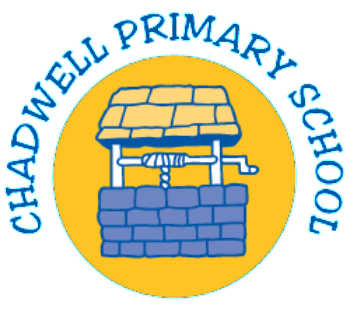Writing at ChadwelL
The community of Chadwell Primary School believes that it is essential for all pupils to be able to confidently express and communicate their knowledge, ideas and emotions, through writing. We strive to ensure that our students develop and extend their vocabulary, grammar and phonic knowledge, throughout each of the Key Stages. It is our intent to develop the children as authors who can write coherently and effectively for a range of audiences and purpose, using modelled examples as inspiration. We promote the importance of proof- reading and making additions or revisions, as part of the editing process. All children are encouraged to take pride in the presentation of their writing, developing their handwriting style and preparing them for life beyond the walls of Chadwell.
Within our English lessons, the children are supported to develop their writing through a range of collaborative and independent strategies, including shared and modelled writing. Approaches such as these, support the children to verbalise their ideas out loud, both alone and with others, so that they can evaluate or broaden and refine them. All English lessons are linked to a core text enabling the children to be fully immersed in the language, structure and characterisation of a particular author, which they are then able to start using to develop their own author’s voice and writing style.
Stages of writing
Within English lessons, the children are supported to develop their stamina, motivation and skills to write through a range of different collaborative and independent strategies.
These include:
- Analysis of modelled examples: Children and staff collectively discuss and analyse the features of a model text with the underlying structure and language features that they will need for their writing. As reflective learners, they evaluate the language and layout structures within a model, identifying why and how they have been used. During this stage, the children are encouraged to acquire (magpie) effective vocabulary and language patterns that the author has used, creating their own writing toolkit.
- Planning writing: Children use a variety of planning formats to outline the main events of their fiction or non-fiction writing. This can take many different forms, including text maps, story maps or box-it up plans.
- Talking the text: Using their plans, children rehearse their ideas out loud, helping them to internalise the language and sentence structures. Actions and drama can sometimes be used, to support the children to deepen their understanding.
- Shared writing: The children and teacher work together to compose a text, with both of them contributing their thoughts and ideas in the form of a discussion. All ideas are scribed by the teacher or pupil and used as an additional scaffold for the children to refer to on the English working wall. As part of this discussion, questions are used to help develop and broaden ideas suggested by the children, as well as providing opportunity for adults and children to reflect on their progress.
- Modelled writing: When using this strategy, teachers model the steps and thought process involved in constructing a piece of writing. They verbalise their thoughts out loud, so that the children can experience them and understand the steps they should take to complete their own piece of writing.
- Independent writing: Using and applying the language and structure features that they have discussed, rehearsed and had modelled for them, the children create their own piece of writing, developing their identity as visible learners.
- Editing and evaluation: After completing a piece of writing, the children are encouraged to read back through it and check that they have produced their best writing, showcasing their knowledge and understanding as reflective writers. Where appropriate, checklists are provided for self or peer evaluation. Editing can also be completed in response to verbal or written feedback, in line with the marking policy. (KS1 and KS2).
- This takes on two forms:
- Editing for effect à Considering the audience and purpose of their writing, the children extend their sentences, add detail or description and edit their vocabulary so that it is more ambitious or precise.
- Editing to improve coherency à The children read back through their writing making edits that help improve the sense of their writing (e.g. adding missing punctuation, correcting spellings, etc.).
- Publishing writing: On completion of the editing process, children are given opportunity to publish their writing, for an audience. This can be in written form or as part of a performance (e.g. poetry, monologues, instructional videos, etc.), developing their creativity as learners.
Pupils of Chadwell Primary School leave us with experience and enjoyment of writing for different audiences and purpose, using and applying the appropriate features of each form of writing. This knowledge and experience supports them to make a successful transition to Key Stage Three, whilst also preparing them for formal and informal written communication within their wider community and adult life. Chadwell learners will succeed in all English lessons as a result of provision of appropriate scaffolds and challenges. They have a widened vocabulary that forms part of their writer’s toolkit and can be used and applied within their writing. Application of the evaluation skills which are taught through the English curriculum, equip the children with the knowledge and skills to develop their growth mind-set and resilience to new experiences, supporting them to make a positive contribution to society. Our learners develop increased motivation and self-confidence, through use of a range of techniques promoting independence, which are embedded in their long-term memory and can be applied beyond the walls of our school setting. Through use of texts which represent the diverse nature of our society, the children of Chadwell hold mutual respect and tolerance for the beliefs and values of others, whilst demonstrating understanding of democracy.

 Chadwell
Primary School
Chadwell
Primary School